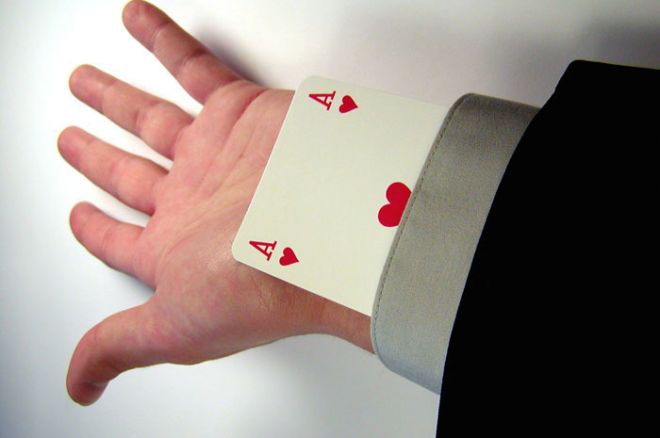Do you know how to recognize a cheating online poker players? No? You’re in luck since today we’ll look at the five most typical ways to get scammed while playing online poker.
From the Mississippi riverboats where the game is supposed to have begun to the most recent internet software, poker has always been a game where cheating is possible. We want you to be able to recognize a cheater, so we’re looking at 5 ways online poker players can lose to cheating.
Individuals who have conspired to take money from others in the game without winning through fair methods have been few and far between in recent years. This is most likely owing to the sophisticated software and zealous policing that poker has become known for.
Cheating is a risky wager that even the most rash of gamers would avoid in today’s world. Despite this, it still occurs, making it critical to grasp how to prevent poker cheats.
What measures are utilized to prevent honest online poker players from a level playing field, and how does cheating still exist? We discovered five approaches that are observable but occasionally slip past the cracks.
- Ghosting
Ghosting isn’t just an online issue; it’s much more common when it happens over the internet rather than at a live event’s rail. In essence, ghosting is when a participant in a poker tournament seeks specific assistance from another player or players while the game is still in progress.
Even at live events, players can go to the rail for help. Poker is supposed to be a solo mind sport, yet even at live tournaments, players can go to the rail for advice. That’s fine between hands, but it’s not allowed during hands – which is more common online – and video conferencing tools like Zoom or Teams make it easier than ever to get live assistance from other players without your opponents knowing.
A shift in playing style in your opponent at the final table is the most common form of cheating, and it occurs more frequently towards the end of huge events. It’s worth reporting if you believe you’ve been ghosted, but as we’ve mentioned, proving it might be tricky.

- Collusion
Collusion has been in poker from the game’s inception as it sailed down the Mississippi River, and it differs from plain ghosting. When two (or more) players conspire to boost their odds of winning a hand, numerous hands, or an event, this is known as collusion.
Because it’s so difficult to organize this form of cheating, it’s more common at large stakes because it wouldn’t be profitable to do so in a $1/$2 cash game or a $5 rebuy, for example.
Collusion can occur in live poker, online poker, or both, such as when two players collaborate to win packages to a live tournament and then meet up there to reap the benefits of their collusion.
While collusion is still a major issue, the level of security at the major poker sites has improved significantly, and more is being done to combat it.
- Multi-accounting
Multi-accounting has recently been in the news as poker players have been caught doing it illegally. When a player opens multiple real money poker accounts on the same poker site, they might pretend to be different players in the same tournament or cash game.
Players can get several incentives when joining poker sites, which is also wrong, in addition to affecting specific poker hands. As a result, accounts suspected of being numerous accounts belonging to the same player are routinely frozen while investigations are conducted.
Multiple accounts don’t appear very often, but when they do, they’re frequently ascribed to well-known players, leaving a sour taste in the mouths of many supporters. Almost all poker sites prohibit multi-accounting and safeguard themselves at the registration stage by requiring official credentials such as a passport or driver’s license.
- Computer Programs
If you’ve ever played even a nine-man sit n go, you’ve probably yelled, “You bot!” at the computer screen at least once, but what if the person you’re up against is a computer program? Bots can always make the best decision — at least until human play improves to the point where the computer program needs to be modified.
When playing online poker against other people, how can you know if you’re playing a robot or a human? One way to tell if a ‘player’ is cheating is to look at how many tables they’re playing at and how long they’ve been at the felt without missing a hand.
Others include always making the right decision or acting as though they aren’t human in terms of no dialogue or emotional connection (e.g., throwing a virtual tomato at an opponent) while on the virtual felt.
- Super-Users
The most heinous manner of cheating is, thankfully, the most uncommon. Super-users are people who have hacked a poker site and discovered a means to see other players’ hole cards. Mike Postle, who is accused of doing this with the help of others, is possibly the most high-profile poker player to be accused of this in recent memory.
Unfortunately for poker, Postle isn’t the only one who’s been branded with the same brush. When it was revealed that Russ Hamilton was a super-user on the US poker site Ultimate Bet, he became embroiled in a scandal. After the Ultimate Bet incident, Hamilton, the former 1994 WSOP Main Event champion, had the honor of winning his weight in silver, but charges of cheating stuck to him like pocket aces pre-flop.
Knowing everyone’s cards and being a super-user is the lowest moral compass since the snake in The Bible. Simply put, being able to see other people’s cards at a poker table is the lowest of the low, and winning needs no talent. It doesn’t even necessitate a little bit of luck!
Always report a problem if you believe you are being cheated at the virtual felt. Keep yourself safe when playing online Result SGP by reading our reviews of safe places to play on. Best of luck!
Read More: [IMPORTANT] 5 Slot Mistakes to Avoid for All Players 2022













